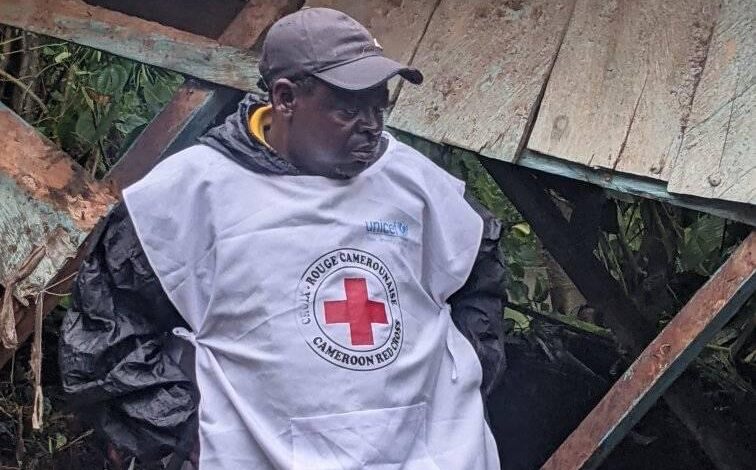Experts Warn Cameroon Faces Heavier Downpours After Deadly Flooding
Heavy rains across some cities in Cameroon have led to the deaths of at least 45 people through floods and landslides. Experts say there could be more damage in August and September.

Forecasters are predicting more heavy rain in Cameroon, where scores of people have already been killed in floods, landslides and a building collapse in the past week.
Experts told HumAngle people who are in vulnerable areas to get out and move to safer ground as soon as possible.
More than 40 people were killed in Douala, the country’s commercial capital, when a building collapsed during a torrential downpour on Sunday July 23.
Some twenty people were injured in the building collapse. They are receiving treatment in local hospitals in the town.
In the following days more people died in floods and a landslide in the Southwest region, bringing the estimated death toll to over 45.
A day after the building collapsed, rescue efforts continued as it was reported over 100 people had been in the building.
Landslide
Firefighters in Douala dug through the collapsed building looking for more survivors, or the bodies of an estimated forty people, for days after the collapse.
The four-story block collapsed onto a neighbouring building, bringing it down partially.
A day later in Limbe, Southwest Cameroon, there was a landslide that killed at least five people.
The UN humanitarian agency OCHA says an estimated 2,000 individuals were affected in several neighbourhoods in Limbe One sub-division.
Some 13 patients were injured and hospitalised at the Limbe sub-divisional hospital. Others were referred to other hospitals due to the flooding of the hospital wards and offices.
Climate
The heavy downpour in Douala and Limbe has prevented movement of people, while others lost their homes entirely.
Cameroon’s National Observatory on Climate Change (ONACC), says cases of floods and landslides are recurrent in most fragile ecological areas in Cameroon.
The causes, it says, can be explained by the fact that these areas either receive torrential rains in a very little lapse of time or witnessed prolonged rainfall episodes.
It has however stressed on the fact that the damage cannot solely be attributed to climate change.
Following a recent study conducted by ONACC, there has been a significant modification in rainfall patterns, intensity and spatial distribution over Cameroon, which has provoked floods, landslides and mudflows.
“It is important to note that these hazards are often triggered by poor urban planning, poor waste disposal, poor drainage systems, occupation of risky zones just to underline a few,” a spokesman said.
Forecasts for the next two months show Douala will witness episodes of torrential rains potentially causing more floods.
“Unfortunately, there is no certainty as to when climate change will soon be resolved, hence the population must develop mitigation and adaptation strategies, especially in highly vulnerable countries like ours,” the spokesman advised.
Poor drainage systems partly contributed to the floods in Douala, Limbe and Yaounde.
ONACC has urged the local population to avoid settling in high-risk zones in these towns.
“For those who are already inhabiting these areas, they should consider relocating to safer grounds as soon as possible,” the spokesman warned.
Summary not available.
Support Our Journalism
There are millions of ordinary people affected by conflict in Africa whose stories are missing in the mainstream media. HumAngle is determined to tell those challenging and under-reported stories, hoping that the people impacted by these conflicts will find the safety and security they deserve.
To ensure that we continue to provide public service coverage, we have a small favour to ask you. We want you to be part of our journalistic endeavour by contributing a token to us.
Your donation will further promote a robust, free, and independent media.
Donate HereStay Closer To The Stories That Matter




